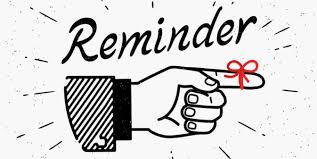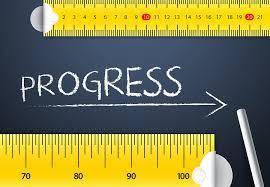Learn more about personaldevelopment with this collection
How to avoid email overload
How to organize your inbox
How to write effective emails
Common Obstacles To Writing
- You’re busy: separate 5-15 minutes to write, first thing in the morning, and stick to it.
- You’re intimidated: The important thing is to start.
- You’re not motivated: Commit to writing to an accountability group and report to them if you wrote or not.
- You’re distracted: Close all programs but the writing one.
- Nothing to write about: Spend some time during the day thinking of what to write. Exercise, going to bed, the shower, and your commute are good times to do this.
485
1.17K reads
Commit To Writing Every Day This Month
Make a public commitment, to people who will hold you accountable. You don’t need to publish your writing each day, but just write at least 5 minutes a day.
It can be any type of writing and it doesn’t have to be good, so let go of your desire for perfection.
379
899 reads
Set Aside 5-10 Minutes
Setting your writing time during the morning is ideal as you haven’t gotten busy yet. But find what works for you and treat this appointment as unmissable.
369
859 reads
Have a Trigger And Reminders
It’s best to set your writing time right after something else you regularly do each morning: wake up, shower, brush your teeth, etc. Try to set it before anything that might lead to further tasks or distractions, like email checking.
You can also set reminders, or write reminder notes for yourself, that will be seen when your trigger happens.
362
715 reads
Think Of What To Write In Advance
Think about what you want to write during a workout, on a walk, in the shower, while you eat, on your commute, in a boring meeting. But definitely think about it before you go to sleep.
363
788 reads
Just Focus On Starting Each Day
Turn off notifications and, if you’re not using pen and paper, close all programs but the one you’ll use to write. Preferably though it in the night before, so you aren’t distracted when the writing time comes the next day.
You don’t have to write for a full 5-10 minutes. Writing just a few words is all you need to be successful today, the volume will come later.
360
670 reads
Report On Your Success
Report to your accountability group every day, whether you were successful or not. When you are unsuccessful, strongly commit to getting back on track the next day or even set up penalties or rewards for extra motivation.
314
885 reads
CURATED BY
More like this
6 ideas
How to Develop a Daily Writing Habit
medium.com
13 ideas
How to Build a Daily Personal Journaling Habit
developgoodhabits.com
Explore the World’s
Best Ideas
200,000+ ideas on pretty much any topic. Created by the smartest people around & well-organized so you can explore at will.
Powerful Saving & Organizational Tools
Save ideas for later reading, for personalized stashes, or for remembering it later.
Start
31 ideas
Start
44 ideas
# Personal Growth
Take Your Ideas
Anywhere
Organize your ideas & listen on the go. And with Pro, there are no limits.
Listen on the go
Just press play and we take care of the words.
Never worry about spotty connections
No Internet access? No problem. Within the mobile app, all your ideas are available, even when offline.
Get Organized with Stashes
Ideas for your next work project? Quotes that inspire you? Put them in the right place so you never lose them.
Start
47 ideas
Start
75 ideas
My Stashes
Join
2 Million Stashers
4.8
5,740 Reviews
App Store
4.7
72,690 Reviews
Google Play
Sean Green
Great interesting short snippets of informative articles. Highly recommended to anyone who loves information and lacks patience.
“
samz905
Don’t look further if you love learning new things. A refreshing concept that provides quick ideas for busy thought leaders.
“
Shankul Varada
Best app ever! You heard it right. This app has helped me get back on my quest to get things done while equipping myself with knowledge everyday.
“
Ashley Anthony
This app is LOADED with RELEVANT, HELPFUL, AND EDUCATIONAL material. It is creatively intellectual, yet minimal enough to not overstimulate and create a learning block. I am exceptionally impressed with this app!
“
Giovanna Scalzone
Brilliant. It feels fresh and encouraging. So many interesting pieces of information that are just enough to absorb and apply. So happy I found this.
“
Ghazala Begum
Even five minutes a day will improve your thinking. I've come across new ideas and learnt to improve existing ways to become more motivated, confident and happier.
“
Laetitia Berton
I have only been using it for a few days now, but I have found answers to questions I had never consciously formulated, or to problems I face everyday at work or at home. I wish I had found this earlier, highly recommended!
“
Jamyson Haug
Great for quick bits of information and interesting ideas around whatever topics you are interested in. Visually, it looks great as well.
“
Read & Learn
20x Faster
without
deepstash
with
deepstash
with
deepstash
Access to 200,000+ ideas
—
Access to the mobile app
—
Unlimited idea saving & library
—
—
Unlimited history
—
—
Unlimited listening to ideas
—
—
Downloading & offline access
—
—
Personalized recommendations
—
—
Supercharge your mind with one idea per day
Enter your email and spend 1 minute every day to learn something new.
I agree to receive email updates















